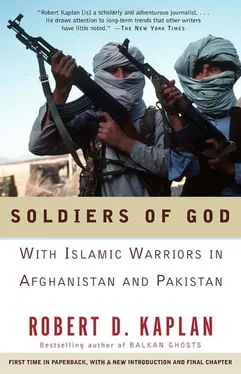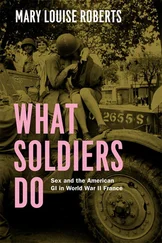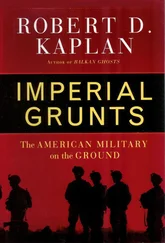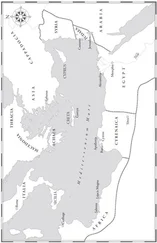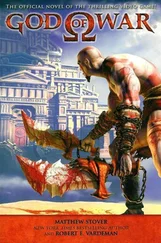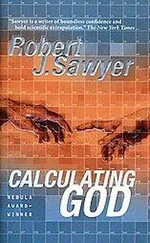The Europeans (especially the French) who visited Massoud had to be tough, or at least a little crazy. The trek into the Panjshir took up to three weeks on foot. It involved climbing several Himalayan-style passes and negotiating some of the most dangerous mine-strewn terrain Afghanistan had to offer. Few Americans — for whatever reason — made the journey, and because Massoud never emerged from inside, few Americans met him, so they were suspicious of him. As one Peshawar-based American reporter argued: “Every interview with Massoud is conducted by a journalist who has just completed a difficult journey to the Panjshir and practically owes his life to the Tajik commander, and the result is that all the articles about Massoud have been written in a tone of fawning adulation.”
Massoud’s arms relationship with the Chinese added to American suspicions. Calumnies surfaced about him. For example, one rumor had it that he was rarely in the Panjshir at all, but was secretly spending much of his time in a luxurious and secluded Peshawar villa. In the outside world, Massoud was a hero; in Peshawar, the center of the guerrilla war effort, he was controversial.
The biggest stone that Massoud’s enemies had to throw at him was his short-lived 1983 cease-fire with the Soviets. He used the respite to build new supply trails into Pakistan, to initiate personal contacts with other resistance leaders in the far north, to train new recruits, and to clean out areas infested with an extremely radical mujahidin faction that was causing him and other guerrilla groups trouble. It was time well spent, and he built his later successes on that period of consolidation. But Massoud’s enemies had a point too, if a mean-spirited one: the cease-fire was “a very Tajik thing to do.” In other words, it was, in a sense, selfish, since it allowed the Soviets to put more military pressure on the Pathans, who were fighting everywhere else in the country. More important, the cease-fire was a very rational — and worse, a very Western — way of dealing with a superior Soviet force that was razing Afghanistan with the same abandon as the thirteenth-century Mongol hordes.
Tactically speaking, the cease-fire was smart, but it certainly wasn’t the way the mujahidin were going to drive the Soviets out. The Pathans would never have considered something so logical and prudent as a temporary truce. It would have been an affront both to their manhood and to Pukhtunwali, their code of honor, whose supreme precept is badai — revenge.
So Massoud was the exception to the general reason the Soviets were losing the war: because of the wild, quixotic, completely unreasonable mentality of the Pathans, to whom the whole notion of tactics was anathema because it implied distinctions, and Pathans at war thought only in black and white.
Like the Tajiks, the Pathans also had a great commander. To Abdul Haq’s supporters in Peshawar, he, not Ahmad Shah Massoud, was — in the words of a glossy poster with Haq’s picture on it — “the Afghan lion.” Actually, Abdul Haq wasn’t a lion at all. He was a big, friendly bear of a man with black hair, a beard, and an impish smile who had a much more difficult task to accomplish than Massoud.
While Massoud’s lair was a valley perfectly laid out for a guerrilla struggle, Abdul Haq stalked the Afghan capital of Kabul and its environs, the center of the Soviet and Afghan Communist power structure, which was packed with government ministries, division-size military bases, KhAD agents, barbed wire fences, checkpoints, and minefields. Haq had to fight an urban war of sabotage, as well as a guerrilla war in the adjacent mountains and villages. This called for even greater organization than Massoud required in the Panjshir Valley. And Haq had to do this with Pathans, who, because of their tribal rivalries, were more difficult to organize than Tajiks.
Yet, compared to Massoud, Abdul Haq had little written about him until the last years of the Soviet occupation. Few knew him well, and those who did were not print journalists. In the early and mid-1980s, Haq moved swiftly and constantly around the Kabul region, stopping briefly in Peshawar every few months in order to straighten out matters of manpower, logistics, and financing. He had family concerns to attend to as well, and those were far more important than his military problems. Haq’s family was a highly unusual one, and the Pathan war effort was inextricably tied up with the complicated relationships among its members.
Born in April 1958, Abdul Haq had two older brothers, Abdul Qadir, who was about five years older than Haq, and Din Mohammed, who was ten years older. (Pathans don’t use family names, and noms de guerre further complicate matters.) Abdul Qadir was the mujahidin commander of Shinwar, an Afghan district just over the border from the Khyber Pass, on the main route linking Kabul with Pakistan. Din Mohammed was the chief political and administrative operative for Yunus Khalis’s Hizb-i-Islami (Party of Islam), one of the two most militarily powerful Afghan resistance organizations. (The other was Jamiat-i-Islami — Islamic Society — which Ahmad Shah Massoud was affiliated with.)
While Jamiat was a Tajik-dominated party, Hizb-i-Islami was the ultimate Pathan party: it presented a facade of Moslem fundamentalism, but in reality it was tribal. Yunus Khalis, a respected Moslem cleric and former schoolteacher, played the role of figurehead and spiritual guide; Din Mohammed ran the party’s daily operations. This party, which constituted the strongest mujahidin force in the major cities of Kabul, Jalalabad, and Ghazni, appeared to the uninitiated outsider as one big, disorganized mess.
Hizb-i-Islami had few foreign-language speakers. Its spokesmen rarely kept appointments. Its leaders seemed unable to keep track of one another. Trips inside for journalists, postponed for weeks, often fell through at the last moment. Nor was the party especially interested in help or attention from the Western relief community. The only aid worker whom Hizb-i-Islami appeared to have any regular dealings with was Anne Hurd, an American from Mobile, Alabama, who worked for the Washington-based Mercy Fund. Hurd’s friendly Southern accent concealed a tough, militarylike personality that was neither intimated nor discouraged by the party’s diffident, fundamentalist exterior. Hurd always took care to “dress up” as if she had a “business appointment in Washington, D.C.,” she said. “Even though I’m a woman, the Afghans treat me as an equal because I try to be perceived as being totally outside their culture and range of control.” Still, it took her years of daily effort to establish a working relationship with Hizb-i-Islami officials.
To judge by its power, Hizb-i-Islami obviously worked. How it did so was a mystery, and because of the difficulties in dealing with its leaders, few foreigners bothered to find out. While the smooth-talking Tajiks at Jamiat headquarters had telephones in working order, clear, positive answers to most requests, and ice-cold Coca-Cola and Fanta on hand, the Pathans at the Hizb-i-Islami office offered only Afghan green tea and words riddled with ambiguity.
Abdul Haq himself was the only exception to the confusion. He spoke English, albeit with a lot of profanities mixed in (courtesy of a Dutch journalist who taught him in the early 1980s). He kept appointments and had a reputation as one of the few mujahidin leaders who had really interesting things to say. It was thought that the forceful impression Haq made on President Ronald Reagan and Prime Minister Margaret Thatcher was pivotal in the subsequent American decision to supply the mujahidin with Stinger missiles in 1986. “I told Mrs. Thatcher,” Haq said, “that my great-grandfather and his father before him fought the British, who invaded Afghanistan to keep the Russians out. So I asked her: Now that the Russians have finally come, as the British once feared, why are you so quiet? Why did you send everything a hundred years ago and yet now you send nothing?”
Читать дальше
